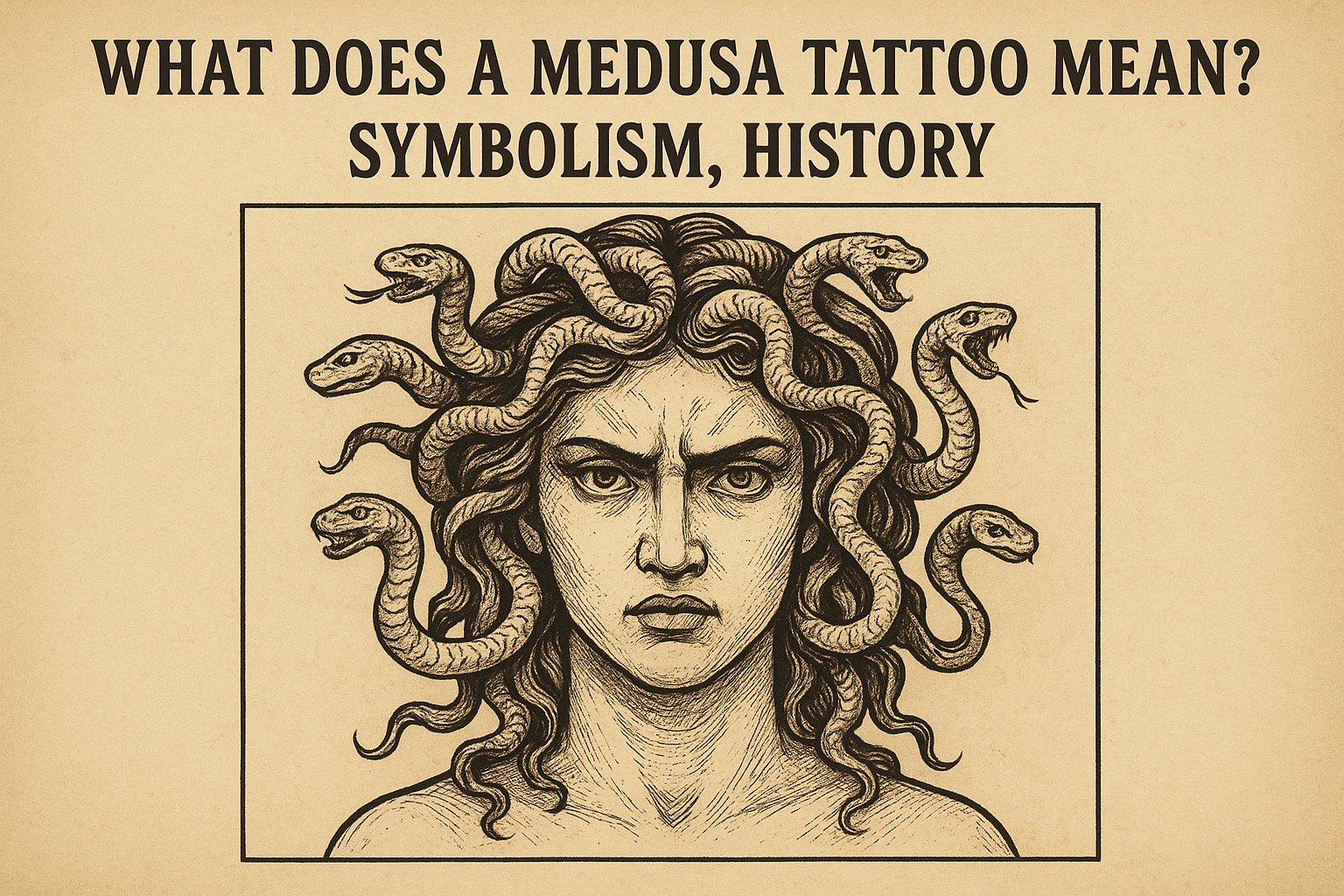Medusa tattoos have surged in popularity in recent years, captivating ink enthusiasts with their bold, mysterious energy. But what does a Medusa tattoo mean exactly? For some, it’s an emblem of strength and resilience; for others, it represents vengeance, trauma, or transformation. The visual complexity and emotional weight of Medusa tattoos make them both stunning and symbolically rich.
Originating from ancient Greek mythology, Medusa has traveled through history—from feared monster to feminist icon. Her image commands attention, and her symbolism evokes a wide spectrum of human experience. Whether you’re considering getting inked or simply intrigued by its cultural relevance, exploring the symbolism and history of Medusa tattoos opens a fascinating window into art, myth, and psychology.
What Does a Medusa Tattoo Mean?

The Medusa tattoo meaning is deeply layered. Traditionally, Medusa symbolizes danger, power, and mystery. Her stare could turn men to stone, making her a symbol of both warning and defense. But modern interpretations go much deeper.
For many, especially survivors of trauma, the Medusa tattoo represents resilience and transformation. It becomes a badge of survival—a declaration of strength emerging from pain. Others may see Medusa as a symbol of feminine rage, beauty, or reclaiming lost power. In all cases, it’s a deeply personal expression woven into the skin.
Academic insights on Medusa’s transformation and symbolism are also discussed in Britannica’s entry on Medusa: https://www.britannica.com/topic/Medusa-Greek-mythology
Medusa Tattoo as a Symbol of Transformation
A Medusa tattoo doesn’t only represent danger or vengeance—it often carries a deeper, more personal meaning of transformation. For many individuals, especially those who have endured trauma or life-altering challenges, the Medusa tattoo becomes a powerful symbol of inner evolution. To fully understand what a Medusa tattoo mean, one must look beyond its fearsome appearance and explore the emotional and symbolic weight it holds for the wearer.
This type of transformation is not always external. It often reflects a profound inner shift—from vulnerability to strength, from silence to expression, from pain to empowerment. The story behind the Medusa tattoo resonates with anyone who has survived darkness and redefined themselves. What does a Medusa tattoo mean to those individuals? It means growth, courage, and reclaiming identity after trauma.
For some, the Medusa tattoo is like a talisman of rebirth, marking the moment they shed old skins—much like the serpents on her head, symbols of continual renewal. Just as snakes shed their skin to grow, the wearer of a Medusa tattoo may use the ink to symbolize personal rebirth. In that sense, the Medusa tattoo mean evolves from mythology into a modern expression of inner healing.
In mythology, Medusa’s transformation was imposed on her as punishment. But in tattoo art, this transformation becomes a voluntary declaration of strength. It flips the narrative. Instead of being seen as a cursed figure, she becomes a representation of overcoming—the embodiment of someone who has embraced their scars and turned them into armor through the powerful imagery of a Medusa tattoo.
Ultimately, if you’re wondering what does a Medusa tattoo mean in today’s world, the answer lies in personal experience. It’s more than decoration—it’s a declaration of survival, transformation, and power.
Origins of the Medusa Myth
Medusa was once a beautiful maiden, a priestess in the temple of Athena. But after being assaulted by Poseidon within that sacred space, she was punished—not protected—by Athena, who transformed her into a Gorgon with serpents for hair and a deadly gaze.
This myth, recounted by Ovid in Metamorphoses, shows how Medusa’s story became one of victim-blaming and monstrous transformation. The tragedy in her narrative adds emotional depth to the tattoo, making it a potent metaphor for injustice, survival, and metamorphosis.
The Symbolism of Snakes in Medusa Tattoos
The snake hair is more than just a visual shock. Snakes are ancient symbols of rebirth and transformation because of their ability to shed skin. In Medusa tattoos, they can symbolize danger, knowledge, medicine, healing, and primal instincts.
A tattoo design focusing on the snakes can signify shedding one’s past and emerging renewed—perhaps more dangerous, but certainly wiser.
If you’re fascinated by deeply spiritual or religious symbols in body art, don’t miss our detailed breakdown of the Sacred Heart tattoo meaning—another powerful design rich with history and emotional depth.
Medusa as a Feminist Icon
Medusa tattoos are often associated with feminist symbolism. In recent decades, particularly with the rise of the #MeToo movement, Medusa has been reclaimed as a representation of women’s rage and the demand for justice. What was once a monster is now a mirror for how society mistreats victims and vilifies their pain.
A Medusa tattoo can, therefore, scream resistance, protection, and righteous fury.

